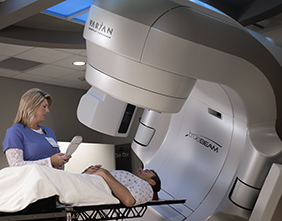I suspect that I may have hearing loss....now what?
posted on: 7/10/2019 10:52:19 AM
I suspect that I may have hearing loss....now what
Rachael Borges, AuD., CCC-A

As an Audiologist, one of the biggest complaints I hear from patients is that they struggle to hear in background noise. Most commonly, those who report this complaint, usually have what is called a high frequency hearing loss. High frequency hearing loss is the most common type of hearing loss and is typically seen in older adults. The high frequency range is comprised of many of the consonant speech sounds including: F, S, TH, SH, CH, K, etc. Vowels are most commonly resonated in the low frequency range, which are usually heard normally in those individuals with only a high frequency hearing loss. When individuals begin to develop a high frequency hearing loss, their ability to distinguish between those consonant sounds decreases, especially when background noise comes into play.
Your ear consists of three major areas: the outer ear, middle ear, and inner ear. In order to hear, sounds waves first enter the outer ear and cause vibrations to occur at the eardrum. The eardrum then passes these vibrations to the three small bones in your ear to amplify the vibrations as they travel through your inner ear. There, the vibrations pass through to your cochlea, which is shaped like a snail and filled with fluid and many tiny hair cells. The fluid in the cochlea begins to move, which in turn causes the hair cells to move as well. These hair cells convert the vibrations into electrical signals that are then transmitted to your brain, turning these signals into sound. If damage or obstructions develop in any of these major parts of your ear, hearing loss can develop, either temporarily or permanently. The main causes of hearing loss include:
- age
- excessive noise exposure
- ear infections/middle ear fluid/ruptured eardrum/tumors/cerumen buildup
- genetics
- ototoxic medications
- illnesses (ex. meningitis, shingles, measles, mumps, etc.)
Noticing hearing changes can be very disturbing. For most individuals, hearing changes occur slowly and are often first noticed by those around you, like your family and friends. It is extremely important to have your hearing checked as soon as you feel that you are beginning to have hearing issues.
Some of the first signs of hearing loss include:
- muffling of speech and other sounds
- difficulty hearing in background noise or crowds
- frequently asking others to repeat themselves
- having to turn the TV and radio up louder than normal
- withdrawal or avoidance of certain social settings
Although being told you have hearing loss can be scary at first, it is important to consider hearing aids if they are recommended for you. Similar to buying a car, a home, or making any other big investment, the decision to purchase hearing aids is definitely a big one. Not only do you want your hearing aids to help you hear, but you also want them to improve your quality of life and attempt to eliminate those daily hearing struggles you previously had. My job as an Audiologist is to make this process as easy and painless as possible.
There are many individuals that have questions about hearing aids even before being told they need them. Some of the most common questions I am asked day to day are the following:
What are the different styles of hearing aids?
There are two main styles of hearing aids: ITE (in-the-ear) and BTE (behind-the-ear). An ITE style hearing aid is worn in the ear and is a custom fit product, made specifically for you by an impression obtained by your Audiologist. A BTE style hearing aid sits at the top of your outer ear and has a tubing or receiver wire that connects to a custom fitted earmold or dome that goes in your ear. Both styles are great options. Your Audiologist may recommend one or the other, or both, depending on the type and severity of your hearing loss.
Which hearing aid is best for me?
There are many manufacturers out there that offer great quality hearing aids. While all hearing aids are designed to help you hear better, there are certain styles, features and models available to meet each person’s specific needs. Before deciding what hearing aids will be best for you, we first discuss your primary goals with amplification and what you hope to improve. Your overall hearing loss, lifestyle, and budget all play a role in this decision. Each of these topics will be discussed at length with you and your Audiologist in order to determine the best decision for you.
How long will my hearing aids last?
With proper use, care and maintenance, hearing aids should last an average of five to seven years. Some individuals are able to extend the life of their hearing aids well beyond this time frame, with occasional fine tuning and repairs, if needed.
Will hearing aids help me hear better on the phone?
While hearing aids will boost overall volume, sometimes individuals will still struggle on the telephone. Currently there are several options available for landline phones as well as cell phone usage. Bluetooth options currently available for patients include a landline phone that will transmit speech into words that appear on a screen for the individual to read during the call. For cell phones, there are wireless bluetooth options that allow for unilateral or bilateral streaming of cell phone calls directly into the hearing aids by the push of a button.
What if I choose NOT to get hearing aids? Will my hearing keep getting worse?
Unfortunately, hearing can decrease over time whether you choose to pursue amplification or not; however, using amplification is said to slow the progression of hearing loss. When your hearing begins to decline, your ability to process sound also decreases due to the fact that the brain is not being stimulated the way it would with normal hearing. Without amplification, your ability to distinguish between certain words including both consonants and vowels becomes much more of a struggle. This can negatively impact your social and emotional well-being, leading to cognitive impairments and possibly even dementia. That is why using amplification and boosting the overall volume of sounds can help you hear and distinguish sounds, while also giving your brain the continued stimulation needed to decrease the potential of further loss.
If you have any questions regarding your hearing health or feel that it is time for you to have your hearing tested, please give the Audiology office a call at 419-226-5070, and we would be happy to assist you.
Website




